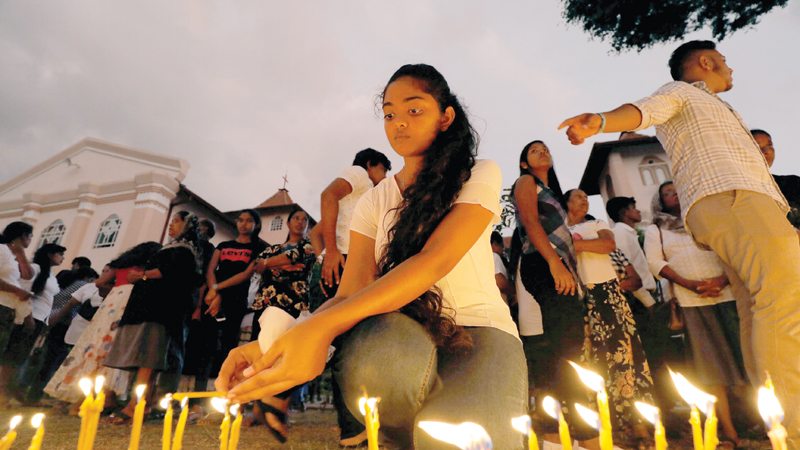

Colombo: Sri Lankan social networks saw a surge in fake news after the Easter suicide bombings a month ago despite an official social media blackout, highlighting the inability of governments to contain disinformation, experts said.
A nine-day ban on platforms including Facebook, Twitter, YouTube, Instagram and WhatsApp was introduced following the IS-claimed attacks on churches and hotels on April 21 which killed 258 people and wounded nearly 500.
Many anxious social media users switched to virtual private networks (VPNs) or the TOR network to bypass the order and keep communication open with friends and relatives as the extent of the carnage became clear.
But for others, the tools were a means to spread confusion and vitriol as the island struggled to come to terms with one of the worst terror attacks in its history.
Sanjana Hattotuwa, who monitors social media for fake news at the Centre for Policy Alternatives in Colombo, said the government blackout had failed to prevent “engagement, production, sharing and discussion of Facebook content”, and that he had seen a significant increase in false reports.
AFP has published half a dozen fact-checks debunking false claims made on Facebook and Twitter after the Easter attacks.
Some had dug out photos of coffins and funerals from Sri Lanka’s brutal decades-long civil war and claimed they showed victims of the blasts.
One video posted to Facebook showed police arresting a man dressed in a burqa and claimed he was involved in the bombings. The video was actually from 2018, and showed a man who had used a burqa to hide his identity while he sought to attack someone over a debt issue.
Another used a five-year-old photo from India that showed a group of men wearing T-shirts with “ISIS”, another name for IS, written on them to claim there was an active IS cell in eastern Sri Lanka.
Authorities in Sri Lanka previously blocked Facebook in March 2018 after Buddhist hardliners used incendiary posts to fan religious violence that left three people dead and reduced several hundred homes and shops to ashes.
The surge in fake news has further blemished the troubled reputation of social media — which several years ago had been seen as a means to expand freedom of information — in the region. — AFP
Oman Observer is now on the WhatsApp channel. Click here



